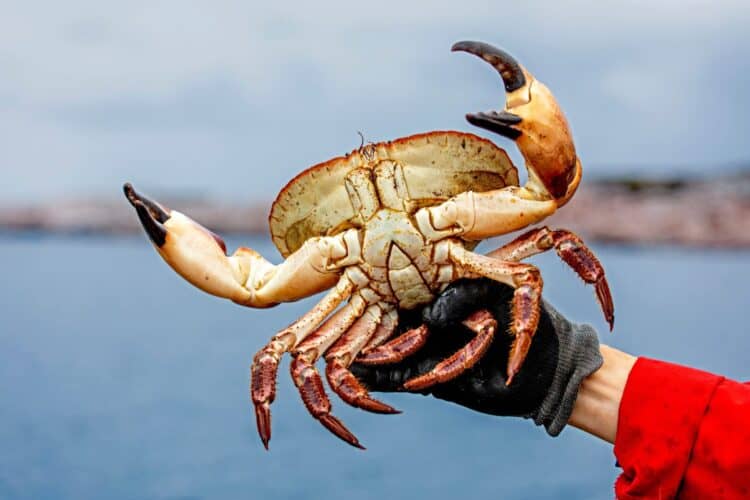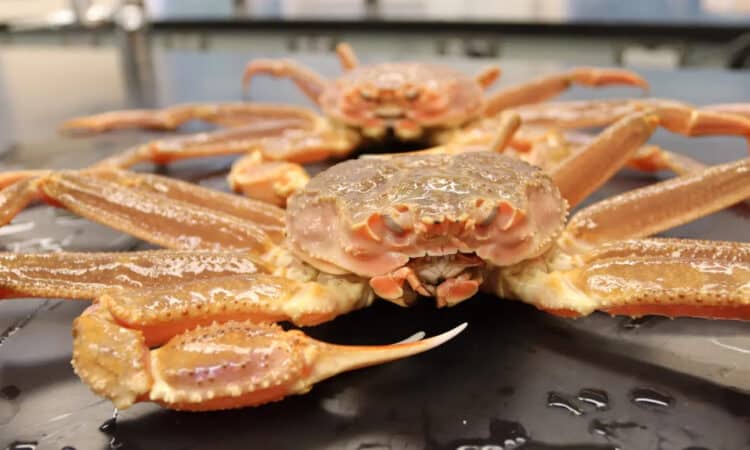Crabs, the fascinating creatures that have captivated our imaginations through fictional characters and even kept as pets in the form of hermit crabs, are the subject of a growing concern among experts.
Many argue that the way we treat crabs, particularly when it comes to their consumption as food, is not only inhumane but also indicative of a larger disregard for their well-being.
It is a common practice to cook crabs by dropping them into boiling water while they are still alive, and then breaking open their shells to access the succulent flesh inside.
However, this method of preparation has sparked outrage among those who believe it is cruel and barbaric.
Moreover, the state of our oceans, heavily polluted by human activities, has led to a decline in crab populations.
Factors like pollution and climate change are causing crabs to lose their sense of smell and weaken their shells, leading to significant consequences for their survival.
The question arises: Are crabs merely mindless sea bugs, as some claim, or do they possess a level of intelligence and sentience that demands our consideration of their welfare? Experts in animal cognition and welfare have shed light on this issue, highlighting the remarkable cognitive abilities observed in crabs through various experiments.
Dr. Andrew Crump, a lecturer in animal cognition and welfare at the Royal Veterinary College, emphasizes that intelligence alone does not determine our responsibility to care for an animal’s well-being. Instead, it is sentience—the capacity to experience positive and negative emotions—that should guide our concern for animal welfare.
Studies have shown that crabs exhibit aversion to experiences that have previously caused them harm or discomfort. This aversion goes beyond instinct or reflex and suggests a deeper emotional response.
Gregory Jensen from the University of Washington’s School of Aquatic and Fishery Sciences argues that if animals did not associate trauma with negative emotions such as pain, there would be no incentive for them to avoid it. Pain-inducing defense mechanisms found in various animals and even plants indicate the universality of pain as an unpleasant experience.
Dr. Edward Pope, an associate professor in marine biology at Swansea University, also supports the notion of sentience in decapod crustaceans, which include crabs, lobsters, and shrimp. While it may be difficult to determine whether crabs experience complex emotions, their ability to detect damage and respond to it suggests a capacity for pain and negative feelings.
Given the growing understanding of crabs’ potential sentience, the ethical dilemma arises when it comes to their slaughter — although there shouldn’t be. There is no such thing as humane slaughter.
The discussion surrounding the treatment of crabs raises broader questions about our ethical responsibilities towards all living creatures. If crustaceans emitted audible screams when subjected to boiling water, our treatment of them would likely be vastly different. The growing scientific evidence pointing towards the sentience of crabs and other decapod crustaceans urges us to reassess our practices.
Sign this petition to help reduce plastic waste on beaches and save marine life.
What you can do
Support ‘Fighting for Wildlife’ by donating as little as $1 – It only takes a minute. Thank you.
Fighting for Wildlife supports approved wildlife conservation organizations, which spend at least 80 percent of the money they raise on actual fieldwork, rather than administration and fundraising. When making a donation you can designate for which type of initiative it should be used – wildlife, oceans, forests or climate.
This article by Trinity Sparke was first published by One Green PLanet on 28 October 2023. Image Credit :Eliyahu Yosef Parypa/Shutterstock.








Leave a Reply